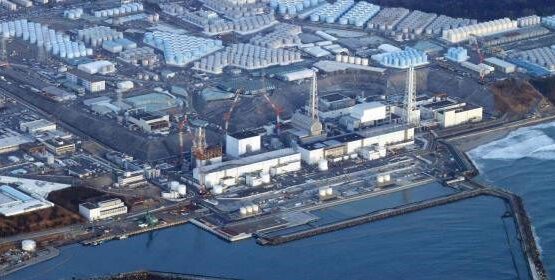BTN News: TEPCO, the operator of the stricken Fukushima Daiichi nuclear plant, recently announced the suspension of a critical operation aimed at removing a small amount of molten fuel debris from one of the damaged reactors. This decision came after the discovery of technical issues with the debris retrieval device, prompting the company to halt the operation until further notice. The setback highlights the ongoing complexities and challenges faced by TEPCO in decommissioning the plant more than a decade after it was devastated by a catastrophic earthquake and tsunami in 2011. The company emphasized the importance of prioritizing safety and caution over speed in their ongoing efforts to mitigate the consequences of the nuclear disaster, underscoring the difficulties inherent in managing such a large-scale and unprecedented clean-up effort.
The suspension of this operation is particularly significant as it would have marked the first attempt by TEPCO to retrieve fuel debris since the disaster, which stands as the second-worst nuclear incident in history, only surpassed by the Chernobyl disaster in 1986. The Fukushima disaster, triggered by a magnitude 9 earthquake followed by a massive tsunami on March 11, 2011, led to widespread devastation and a major nuclear crisis. Official figures indicate that the disaster resulted in approximately 18,000 deaths and left many others missing. The removal of fuel debris is a crucial step in the long-term decommissioning of the Fukushima Daiichi plant, a process expected to take several decades to complete.
TEPCO has not yet provided a timeline for when the operation to retrieve fuel debris might resume. The company discovered configuration errors in the retrieval device, which led to the suspension. TEPCO President Tomoaki Kobayakawa, addressing reporters in Niigata Prefecture—where the company operates another reactor—stressed the importance of proceeding with caution. “It is better to continue the work safely and steadily rather than rushing,” Kobayakawa stated, reflecting the company’s commitment to avoiding further complications or risks in the delicate process of decommissioning.
This incident is not the first time TEPCO has faced challenges in managing the aftermath of the Fukushima disaster. In February, the company reported a minor leak of radioactive water within the plant, which, according to TEPCO, had no external impact. The leak, which amounted to around 15 cubic meters (approximately 5.5 tons), was caused by an improperly closed valve during a water transfer operation. This incident, while contained, serves as a reminder of the ongoing risks and technical difficulties associated with the decommissioning process.
The complexity of the Fukushima Daiichi cleanup, exacerbated by the presence of molten fuel debris and other hazardous materials, requires meticulous planning and execution. Each step in the process carries significant risks, and even minor errors can lead to delays or additional complications. TEPCO’s approach, as indicated by Kobayakawa’s remarks, reflects a strategy of careful, measured progress, prioritizing safety and long-term success over immediate results.
As the world continues to watch the ongoing efforts at Fukushima, TEPCO’s ability to manage these challenges will be critical. The decommissioning of the Fukushima Daiichi plant is not only a technical and engineering challenge but also a matter of public trust and environmental safety. The company’s handling of this process will have long-lasting implications for the future of nuclear energy in Japan and the global approach to managing nuclear disasters.
The latest suspension underscores the difficulties in navigating the complex and often unpredictable challenges that arise in the decommissioning of a nuclear plant, especially one that has suffered such extensive damage. While TEPCO has made progress in many areas since the disaster, the road ahead remains long and fraught with challenges. The cautious approach advocated by the company’s leadership may be the best path forward, ensuring that each step is taken with the utmost care to avoid further setbacks and to protect both the environment and public health.
In conclusion, TEPCO’s decision to suspend the fuel debris removal operation at Fukushima Daiichi is a prudent one, reflecting the company’s commitment to safety and methodical progress. The challenges posed by the decommissioning process are immense, and this latest delay is a reminder of the complexities involved in such a massive undertaking. As TEPCO continues its efforts, the world will be watching closely, hoping for a successful resolution to one of the most challenging nuclear clean-up operations in history.


